Graham Reid | | 3 min read
Van Morrison: Goldfish Bowl
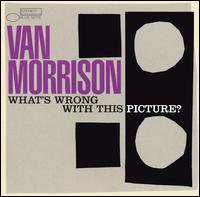
Wordsworth, more fool him, peaked early. The first edition of his groundbreaking Lyrical Ballads collection with fellow poet Coleridge was published in 1798 when he was 28. In the following decades (notably his revised editions) it was mostly downhill.
Sure, he wrote some later stuff worth studying in late-degree Eng. Lit classes, but the real oil came early. His The Excursion in 1814 was greeted with a fabulously negative article in the Edinburgh Review which began, "This will never do".
Peaking early means everything subsequent is compared with your best -- and it's a rare individual who can sustain creative invention. In rock, Dylan and Springsteen have the proven capacity, whereas McCartney and Jagger-Richards settle for the back catalogue (or what sounds sufficiently like it).
Elvis Costello unearths enough nuggets to suggest he knows where rich veins are.
But Van Morrison?
By consensus he created one of the finest albums in rock with Astral Weeks about 40 years ago. For a decade thereafter Morrison's music was essential listening.
For the decade after that there were some flashes of genius. But from the late 80s they became fleeting (parts of Enlightenment, most of Hymns to the Silence in the early 90s).
In the past 10 years, when he has been unnaturally prolific -- dreary jazz-blues albums with Georgie Fame, with Jerry Lee Lewis' sister Linda Gail, The Skiffle Sessions, the tribute to Mose Allison -- the returns have been meagre.
The man notorious for his graceless grumpiness is now on Blue Note, the former jazz label which has extended its parameters to give careers to non-Dewey System people Norah Jones and Cassandra Wilson. But where they bring something unique, on his asking-for-it entitled What's Wrong With This Picture? Van only brings weariness, the familiar and lyrical cliches to what sounds like the fag-end of his career.
He coasts through material as undemanding as Somerset (about summer breezes having gone and a memory lingering on) and for Evening in June sings "keep your eye on the ball and make the right call" as if it means something. The title track is an equally lazy lope through cliches (complete this phrase: "It don't mean a thing if ... ").
In his favoured bluesy manner he delivers Too Many Myths (which even Dylan at his laziest would fill with more feeling and venom), revisits St James Infirmary (which reminds you what fine musicians he can command, the great Acker Bilk among them), and in places his voice still sounds authoritative and deep.
It is a terrible thing to think, but sincerity can be faked.
The worst track is the aggressively whinging Goldfish Bowl, in which he grumbles about his lot. If someone else had done it the litany of complaints would be an amusing parody of His Grumpiness. As it stands it's just another Van statement bemoaning his situation as a "celebrity" which, let's be honest, he isn't: "What will it take for them to leave me alone, don't they know I'm just a guy who sings songs, I'm not promoting no hit record, I don't have no TV show, I don't have no reason to live in a goldfish bowl".
Given he rarely allows himself the indignity of being interviewed -- and is rarely profiled these days -- it hardly seems a valid complaint. Does he really have paparazzi legions outside his house?
And let's be honest, Morrison has not been unattracted to the limelight: when tribute albums were popular in the mid-90s he arranged his own when it seemed no one else would.
He lined up Sinead O'Connor, Liam Neeson, Elvis Costello, Marianne Faithfull and others to cover some of his best-known songs, and co-produced it. In the manner of Dylan's Bootleg Series Vol 1 collection of previously unreleased songs, he released the similar double disc The Philosopher's Stone.
Hardly the acts of a man who didn't want to draw attention to himself and who here wails about fame and on the title track tells you he's not that other guy any more.
There's little worthy here aside from the comfortable familiarity of his voice and vocal mannerisms, and the odd track. The rhythmically deft Meaning of Loneliness is good despite his typical literary namechecking ("Sartre, Camus, Nietzsche and Hesse" for the yawn-inducing rhyme) and Get On With The Show is soulful enough, although there is further whiney lyrical nonsense.
Morrison here sounds lazy, ungracious, coasting and arrogant ("Tell me something I don't know"). He's allowed to be all these things. And we're allowed to ignore him.
One English critic has said Van should give up. That's harsh.
Let's simply say, "This will never do".

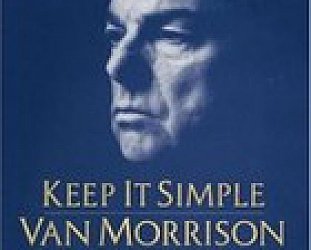


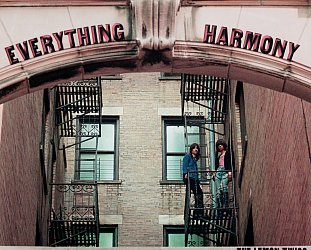
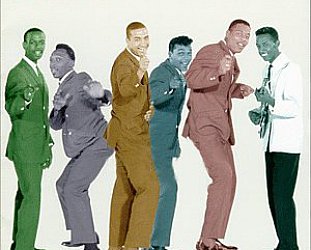
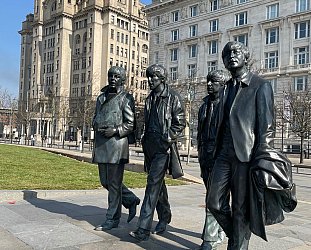
post a comment